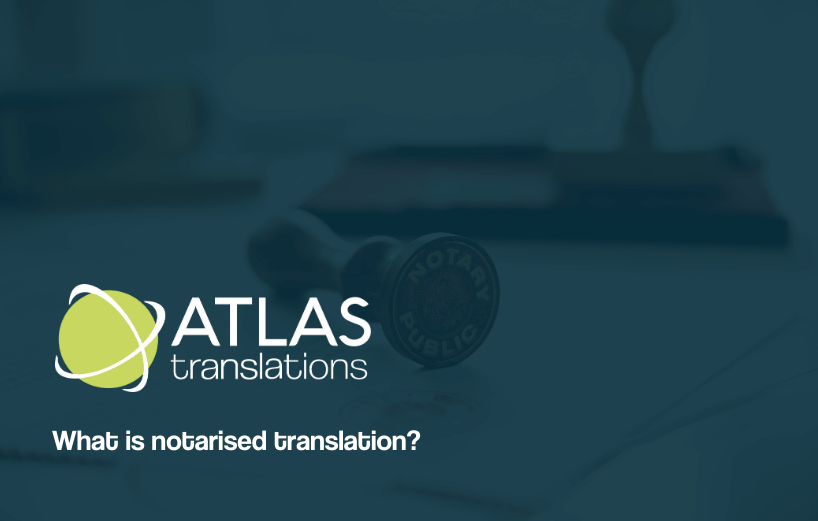What is notarised translation?

Have you been asked to provide a notarised translation of your documents? We explain what notarised translation is and how it differs from a standard certified translation.
Difference between notarised and certified translations
As a UK translation agency, we regularly provide clients with certified translations. This type of translation is commonly required when submitting official documents to UK bodies or organisations, such as the Home Office. A certified translation comes with a signed and stamped statement, which confirms that it is a true translation of the original document, and was carried out by a qualified translator. Atlas Translations is a member of the ITI (Institute of Translation and Interpreting) and the ATC (Association of Translation Companies), and we are fully qualified to certify translations.
In some situations, however, a certified translation is not sufficient and it is necessary to – in layman’s terms – make it “more legal”. This is often required when official documents are being translated for use abroad. It is worth noting that each country has different requirements, and we cannot advise with certainty on the type of translation you need. Some countries or bodies may also require a sworn or apostilled (legalised) translation. We recommend confirming which level of certification you need with the relevant body or organisation that asks for the translation.
Notarisation is an additional step which requires an appointment with the notary. With this additional step comes an additional cost, hence why our certified translation packages differ in price. The turnaround time for a notarised translation may also be slightly longer when compared to a certified translation.
Notarised translations in the UK
Notarised translations, sometimes referred to as “legal translations”, add an extra level of certification or legality. In order for the translation to be notarised, it has to be certified by a British Notary Public.
First, a translator or translation agency has to sign a statement confirming the accuracy of the translation with the original document. The notary will then add their signature and stamp to certify it. Of course, the notary will not be able to verify that the translation is in fact accurate. Their signature and stamp are to authenticate the translator’s identity and to certify that they witnessed the signing (and certifying) of the document.
Notarised translation services
Whether you’re a business or a private individual looking for notarised translation of your documents, we can help. At Atlas Translations, we regularly provide clients with certified, notarised, and apostilled translations – take a look at our 3 packages to find out the details.
If you need a notarised translation of your document, just get in touch. Our notarised translation service starts from £199 + VAT, and can take as little as 3 business days. All we’ll need is a scan or clear image of your document sent to our email address: team@atlas-translations.co.uk. We can’t wait to hear from you!














